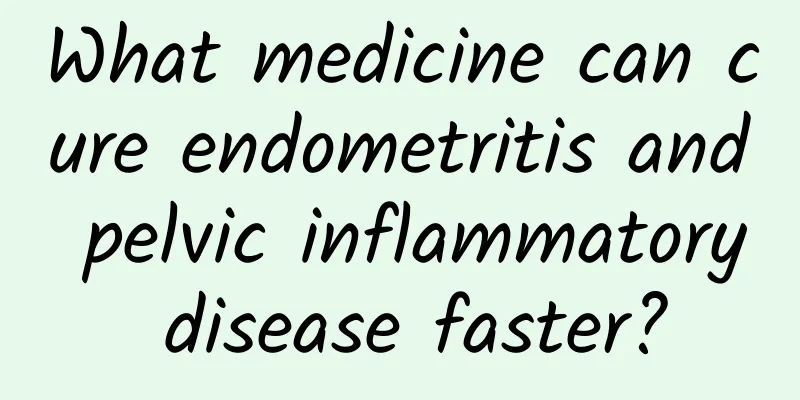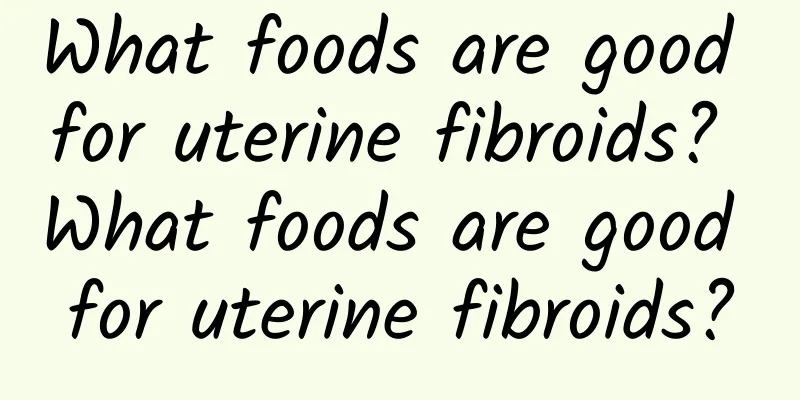What medicine can cure endometritis and pelvic inflammatory disease faster?

|
Endometritis and pelvic inflammatory disease can be treated with drugs to speed up recovery, mainly including antibiotic treatment, anti-inflammatory drugs and auxiliary medications. Specific drugs need to be selected and used under the guidance of a doctor, and combined with a healthy lifestyle to promote recovery. 1. Antibiotic treatment Endometritis and pelvic inflammatory disease are usually caused by bacterial infections, so antibiotics are the main treatment. Common medications include: -Cephalosporin antibiotics: such as ceftriaxone, are suitable for a wide range of bacterial infections and are usually used in combination with other drugs. -Metronidazole: Effective against anaerobic infections and often used as an adjunctive treatment. -Levofloxacin: It has a broad-spectrum antibacterial effect, especially for complicated pelvic infections. The course of antibiotic treatment is generally 7-14 days. The specific dosage and time need to be adjusted according to the severity of the infection and the patient's physical condition. Do not stop the medication on your own to avoid recurrence or aggravation of the disease. 2. Use non-antibiotic medications In addition to antibiotics that kill bacteria directly, anti-inflammatory drugs and analgesics may also be used to relieve inflammatory symptoms and improve the patient's quality of life: - Anti-inflammatory drugs: such as naproxen or ibuprofen, can eliminate local inflammatory reactions and relieve pain. -Assisted by Chinese patent medicines: such as Guizhi Fuling Pills and Jingangteng Capsules, which can help promote pelvic blood circulation and relieve inflammation and stagnation. Please note that it is not recommended to use Chinese patent medicine alone to treat serious infections; it should be used in combination with antibiotics. 3. Auxiliary treatment based on individual circumstances In addition to drug treatment, daily care is also an important part of recovery: -Pay attention to hygiene: Keep the vulva clean to avoid the spread or recurrence of infection. -Dietary adjustment: Eat more foods rich in vitamin C (such as kiwi and citrus) to increase the body's immunity; protein foods (such as fish, eggs, and milk) help tissue repair. -Moderate exercise: Avoid strenuous physical activity during the recovery period. You can choose to take a walk or do simple stretching to help pelvic blood circulation. If the symptoms of endometritis and pelvic inflammatory disease worsen or do not improve for a long time, you need to return to the hospital for a follow-up visit. Comprehensive examinations in advance, correct medication, and standardized treatment are the key to recovery. |
<<: What symptoms are considered serious for pelvic effusion?
>>: Is cervical erosion contagious?
Recommend
Three types of yogurt, analyzed by nutritionists!
In recent years, yogurt has become more and more ...
What should women with cervical erosion pay attention to in their diet? 10 kinds of food have a therapeutic effect on cervical erosion
I believe that many women have come into contact ...
3 things you must know before you can have an effective office workout
Exercise is a wonderful thing. Before you start o...
What are the common symptoms of threatened abortion?
What are the common symptoms of threatened aborti...
The causes of cervical precancerous lesions should not be ignored
Regarding the causes of cervical precancerous les...
These are all manifestations of the dangers of uterine fibroids.
Uterine fibroids are very common in life, and man...
What should we pay attention to when it comes to cervical erosion?
What should we pay attention to when it comes to ...
Progesterone and estrogen trials should be done in patients with amenorrhea
Amenorrhea is a common cause of female infertilit...
Can congenital absence of vagina be completely cured?
Can congenital absence of vagina be treated? Expe...
How to prevent postpartum pelvic inflammatory disease
Winter alternates between dry and humid weather, ...
What are the nursing care for acute pelvic peritonitis
Many women suffer from pelvic peritonitis, which ...
What is a cervical cyst?
Cervical nabothian cyst is a chronic inflammation...
What are the misunderstandings in the treatment of ovarian cysts?
Everyone should be familiar with gynecological di...
What are the treatments for vaginitis?
What are the treatments for vaginitis? This is a ...
Successful weight loss after childbirth! 4 Key points to avoid weight gain
Successfully losing weight after childbirth is th...









